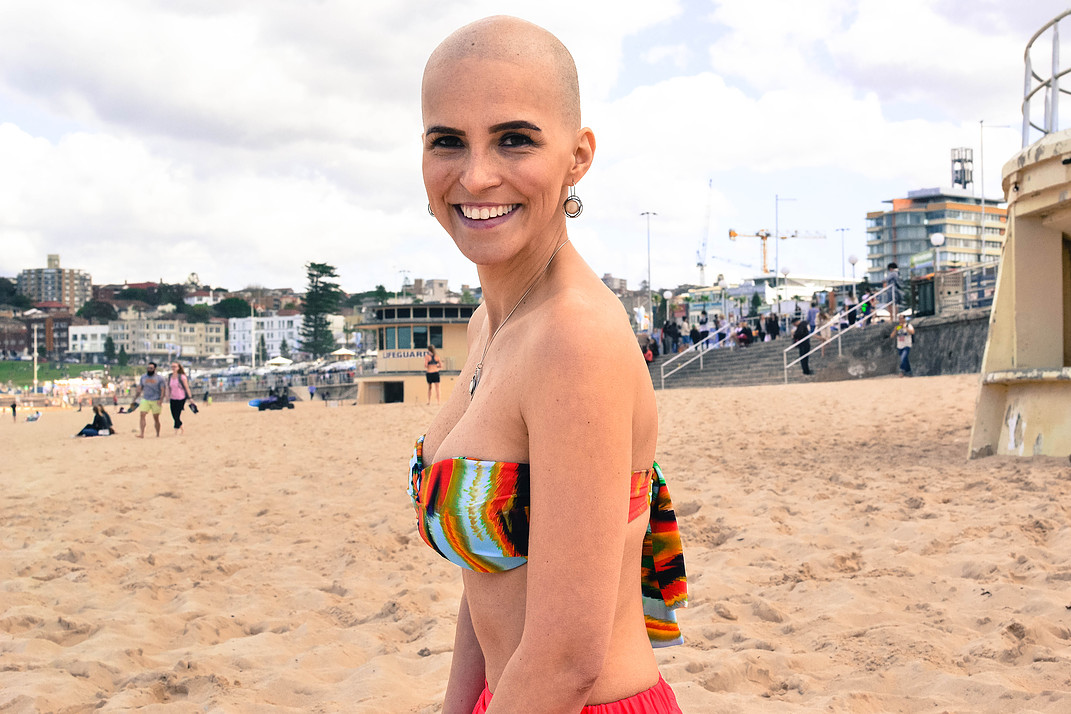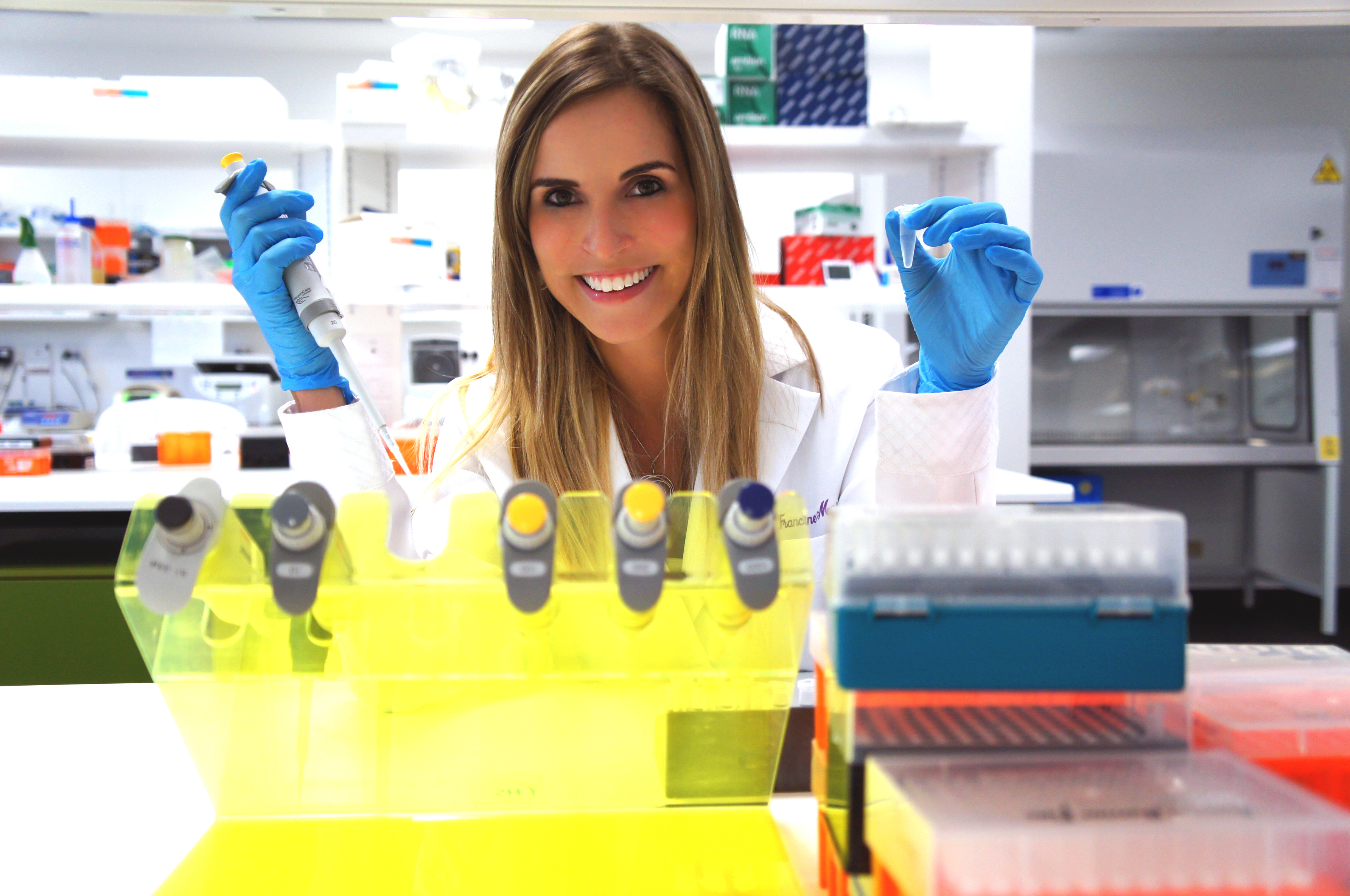Imagine you are 31 years old, starting your second post-doc and excited about the new career opportunities to come. You love doing research and have done relatively well to secure a National Health and Medical Research Council (NHMRC) Early Career Fellowship. Until one day you are diagnosed with cancer. Not any type of cancer, but a type of cancer that kills more than 50% of the patients in 5 years. Well, that was me this year!
During our research lives, all of us will encounter personal or work-related problems at some stage. It can be due to your personal health, family sickness, financial problems, having young kids and trying to come back to work after maternity leave, research environment, lack of funding, supervision issues, methodology that does not work, negative results or difficulties publishing. So I am not writing this blog to talk about my diagnosis or prognosis. Instead, I want to share with you how I have managed to survive in research during the toughest days of my life, and convince you that you can do the same. As Steve Maraboli said “Happiness is not the absence of problems: it’s the ability to deal with them.” So below is my survival plan.
Tip #1: Prioritise and make a plan
Due to 2 large surgeries and 5 months of chemotherapy, I had to change my fellowship to part-time (3 days/week). As a previously confessed research lover (also known as workaholic), it was very difficult to decrease my workload, but I felt constantly physically and mentally exhausted due to the side effects of chemo. Even on nights I thought I would do some work from home I was either too tired to continuum to work or my “chemo brain” would forget about it as soon as I walked home. I had to learn to prioritise and, consequently, to say “no” to a lot of things. To do this, first I did a list of what I wanted to achieve and have a vision of how I was going to get there. For example, I need to apply for a new fellowship in the next 4 months. My priorities at work became preparing for that, which involved finishing projects, trying to publish everything I could and also gathering preliminary data for my fellowship application. I had to learn to say “no” to review some manuscripts, to write commentaries, to establish new collaborations and projects. Basically, I said “no” to anything that wasn’t priority at the moment and would take my focus away. For other things which I couldn’t say no, such as committees who I was part of before my diagnosis or much needed lab work, I learnt to ask for help. That’s where being a team player had a major role.
Tip #2: Be a team player
When there is a crisis, being part of positive and productive teams will ensure you keep getting results and publishing, even if they are not first author papers. I really meant ‘teams’ in the plural because collaborations are essential for our career at long-term and to keep an active profile when things don’t go as we plan (which unfortunately happens all the time!). I am pleased to say we have a good team in our lab, where researchers are willing to help each other for the “greater good” (i.e. publishing and getting funding). Being part of a team also means sometimes you need to spend time helping others, but in a good team this always pays off, as they will be willing to help you too. For biomedical researchers this is particularly important when doing cell culture or animal studies, when timing is essential but you might not always be able to be there. This was my case during my treatment. There were days that I had chemo or doctor’s appointments, or days that I was too exhausted to come in, but the other lab members could feed my cells or treat animals. In return, I would offer to read drafts (of thesis and manuscripts), and help set up experiments that fell within my expertise when I was feeling better.
Tip #3: Find great mentors
I am lucky to say I have incredible mentors who have supported my career and personal development more than words can describe. Being a young female in an unstable career like research, they have had an even more important role. It might sound easy to say you need to find yourself great mentors, but I know it is not that simple. You need to find people that are genuinely interested in you as a person and willing to spend their precious time to guide your career decisions. Independently of their gender, what makes a great match between mentees and mentors is to share similar personal and professional values, and some passions. This creates respect from both sides and appreciation for the time spent together. You might be lucky enough that your supervisor(s) can be your mentor(s) too, other times you need to find mentors outside your research group. Usually your institution should be able to help appointing someone with similar interests; otherwise some societies (such as the International Society of Hypertension) run programs to match mentors and mentees (that’s how Prof Gavin Lambert became my mentor).
I had one episode of a pneumothorax after 3 weeks of chemo and spent a week in hospital. Two of my mentors, Prof Stephen Harrap and Prof Gavin Lambert, came to see me. Gavin also sent me a picture (which usually involved his whole family) EVERY SINGLE WEEK during the 5 months of chemo to cheer me up and show his support. During my treatment, we also never stopped working together. They didn’t treat me different during my treatment, but they were more flexible with deadlines as I couldn’t work as fast as I would previously. We have manuscripts now either submitted or just accepted for publication, and we are also planning grants for the next NHMRC round, which is exciting.
Try to establish these connections before you need them! We all know that part of being a successful researcher is to network. What I suggest is that you establish a good network of collaborators and mentors before you need them. This way, you can keep productive during tough times, following the tips about team work and mentoring above.
Tip #4: When you are at work… work!
Before my diagnosis I can barely remember the days I worked less than 12 hours a day. During my treatment, working 8 hours was already very difficult due to my low energy levels, but I was determined to succeed. The plan was to stay at work the minimum possible, but still get the work done, and work around my energy levels. The days I felt better I would stay longer, the other days I would go home as soon as I could. So during most days, long lunch breaks or just long breaks in general to talk about stuff not related to work were not an option. I would still have lunch or coffee with Gavin and other colleagues, but I would do this when I needed a break after too many hours in the computer or lab.
Tip #5: Challenge your thoughts and transform this into a new opportunity
When we are hit by a big problem, it is much easier to think about giving up than to find ways around it. Above everything, we need to consider what our priorities in life are at that moment – for example, my priorities in the past 6 months were surviving and getting healthy again. Then we need to consider how we can achieve them whilst we continuum to do what we love: research. I soon realised that being upset about my diagnosis and treatment was not going to help me. Instead, it was going to make me less efficient, further decrease my immune system and waste my precious energy. So I decided to use this opportunity to do something different and help others in a similar situation. I became the ambassador of Chemo and Beauty, a Facebook page and blog aimed at bringing information about internal and external beauty, well-being and self-stem to those going through chemotherapy. I am sure you can find ways of transforming your negative experience into something positive too. It can be writing a review or commentary about a neglected topic, or forming a new committee to address the issues you have gone through (because most likely others have experienced similar problems, so why not talk about it). If research funding is an issue, you can write a meta-analysis for example, or apply for small grants.
As Ralph Waldo Emmerson said “Don’t be pushed by your problems. Be led by your dreams.” Life is not always easy, neither is being a researcher. If you are a researcher, however, you will agree that it is one of the most gratifying jobs in the world!
About the author:
Dr Francine Marques is a joint National Health and Medical Research Council and Heart Foundation early career fellow since 2013. She holds a BSc (1st Hons, 2005), a Master degree in Molecular Biology and Genetics (2006, both at UFRGS, Brazil) and a PhD (2012, USyd). She worked initially at Federation University Australia as a postdoctoral researcher. In June 2015, she moved her fellowship to the Baker IDI Heart and Diabetes Institute, under supervision of Prof David Kaye. Her research interests include molecular genomic changes leading to cardiovascular disease. She is also an ambassador for Chemo and Beauty and for the Ovarian Cancer Research Foundation.

